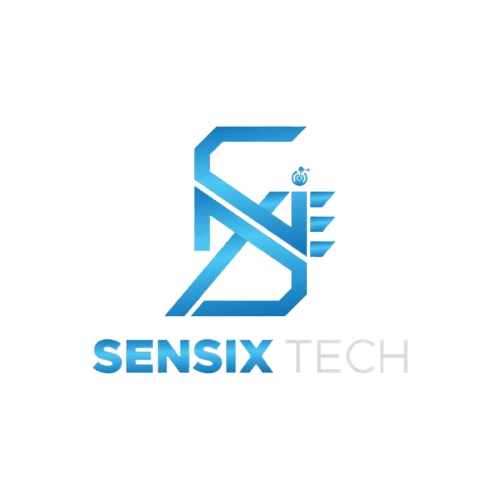Essential Tech for Startups
Introduction
Starting a business is an exciting journey, but in today’s digital landscape, having the right technology is critical to success. Startups need to leverage software solutions that improve efficiency, enhance user experience, and ensure scalability. From selecting the right technology stack to building a scalable Minimum Viable Product (MVP), this blog explores the essential tech every startup needs to thrive.
1. Must-Have Software Solutions for Early-Stage Startups
The right software can help startups streamline operations, enhance collaboration, and improve customer engagement. Here are some must-have software solutions for early-stage startups:
1.1 Customer Relationship Management (CRM) Software
A CRM system helps startups manage customer interactions, track leads, and improve sales strategies. Popular CRM tools like HubSpot, Salesforce, and Zoho CRM offer features such as automation, analytics, and email integration.
1.2 Project Management Tools
Efficient project management is essential for startups with limited resources. Tools like Trello, Asana, and Monday.com help teams organize tasks, set deadlines, and track progress, ensuring better workflow management.
1.3 Cloud Storage and Collaboration Software
Cloud-based solutions allow startups to store, access, and share data easily. Google Drive, Dropbox, and OneDrive provide secure cloud storage, while collaboration tools like Slack and Microsoft Teams enhance communication.
1.4 Accounting and Finance Management Software
Handling finances efficiently is crucial for startups. Tools like QuickBooks, FreshBooks, and Wave simplify invoicing, expense tracking, and tax management.
1.5 Custom Software Development
While off-the-shelf solutions are useful, startups often require custom software development to address their unique business needs. Custom software ensures flexibility, scalability, and better integration with existing processes.
1.6 Cybersecurity and Data Protection Tools
Startups must prioritize data security from day one. Using software like Norton Security, Bitdefender, and Cloudflare helps protect sensitive information and prevent cyber threats.
2. Choosing the Right Technology Stack for Your Startup
A technology stack refers to the combination of programming languages, frameworks, and tools used to develop applications. Choosing the right tech stack is critical for a startup’s growth and scalability.
2.1 Factors to Consider When Selecting a Tech Stack
- Scalability – Ensure that the technology stack supports future growth.
- Flexibility – Choose technologies that allow easy modifications and integrations.
- Cost-Effectiveness – Consider open-source technologies to minimize costs.
- Security – Select secure technologies that safeguard data and prevent vulnerabilities.
- Community Support – Use widely adopted technologies with strong community support for troubleshooting and development assistance.
2.2 Frontend Technologies
- HTML, CSS, JavaScript – Core web technologies for building user interfaces.
- React.js, Angular, Vue.js – Popular frontend frameworks for developing dynamic web applications.
2.3 Backend Technologies
- Node.js, Python (Django/Flask), Ruby on Rails, PHP (Laravel) – Used to develop robust server-side applications.
- Database Options: MySQL, PostgreSQL, MongoDB, Firebase – Used to store and manage application data.
2.4 Mobile App Development Technologies
- Native Development (Swift for iOS, Kotlin for Android)
- Cross-Platform Development (React Native, Flutter)
2.5 Cloud Services & DevOps
- Amazon Web Services (AWS), Google Cloud, Microsoft Azure – Provide cloud infrastructure for hosting applications.
- Docker, Kubernetes, Jenkins – Help with deployment and continuous integration.
Selecting the right technology stack depends on the startup’s goals, target audience, and budget. Consulting with an expert in custom software development can ensure the best choices for your business.
3. How to Build a Scalable MVP (Minimum Viable Product)
An MVP is a simplified version of a product that includes only the essential features required to test the market and gather user feedback. Here’s how startups can build a scalable MVP:
3.1 Define the Problem and Identify the Core Features
Start by defining the problem your startup aims to solve and identify the essential features that address user needs. Avoid unnecessary features that can delay development.
3.2 Choose the Right Tech Stack
Selecting the appropriate technology stack is critical for scalability. Using flexible and modern technologies ensures easy upgrades and maintenance.
3.3 Develop an Agile Development Plan
Agile methodology allows for iterative development, testing, and improvement. By breaking the project into smaller tasks (sprints), startups can build an MVP efficiently.
3.4 Leverage Custom Software Development
For startups with unique requirements, custom software development ensures that the MVP is tailored to specific business needs. Custom solutions provide better control, flexibility, and scalability.
3.5 Focus on UI/UX Design
A well-designed user interface and experience are crucial for user engagement. Use intuitive design principles and user feedback to refine the product.
3.6 Test and Iterate Based on Feedback
Once the MVP is launched, gather user feedback, analyze performance metrics, and make improvements. Iterating based on user responses helps in refining the product for a full-scale launch.
3.7 Ensure Scalability for Future Growth
Building a scalable MVP means designing it to handle increased users and data over time. Using cloud services, modular architecture, and efficient database management helps achieve scalability.
About Sensix Tech
Sensix Tech is a leading Custom software development company in thane specializing in custom software development excellent for startups and businesses. We provide cutting-edge technology solutions, including mobile and web development, cloud computing, and AI-powered applications. Our expertise in building scalable MVPs, choosing the right tech stack, and delivering secure, high-performance software solutions ensures that startups achieve their goals efficiently. If you’re looking for a reliable technology partner, contact Sensix Tech today to bring your startup vision to life.


1 Comment
Your analysis composes new realities! What fascinates about Sprunki Incredibox is its seamless blend of gaming and music production.